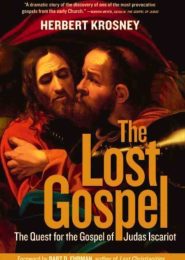Losing God (2014)
In the documentary Losing God, director Joshua Preville dives into the complex journey of his deconversion. Once a fervent born-again Pentecostal Christian, Josh now identifies as an atheist.
The film weaves together candid discussions with various members of the Christian faith, interspersed with segments from a heartfelt letter Josh penned to his family, explaining his decision to abandon his religious beliefs.
Josh engages in conversations with Christians who grapple with profound questions. These discussions touch on topics like the willingness to sacrifice their children for God, belief in demonic warfare, and personal accounts of exorcisms.
The film captures sensitive family debates, including those between a Christian father and his atheist son. These interactions reveal the emotional complexities that arise when faith diverges within a family unit.
Josh confronts the tension between evolution, science, and religious doctrine. The separation of church and state also features prominently, highlighting the ongoing struggle for balance.
The power of prayer and Bible reading to address mental illness is explored. The film raises questions about the efficacy of these practices and their impact on believers’ well-being.
Shocking statistics related to pressing societal issues are interspersed throughout. Topics include gay marriage, the definition of atheism, and the role of religion in shaping public discourse.
Losing God invites viewers to reflect on their spiritual journeys, challenging assumptions and fostering dialogue. Whether you’re a believer, skeptic, or seeker, this documentary provides a = lens through which to explore faith, doubt, and the human experience.
For those curious about the intersection of belief and reason, Losing God offers a compelling exploration that transcends mere dogma and delves into the depths of the human soul.




